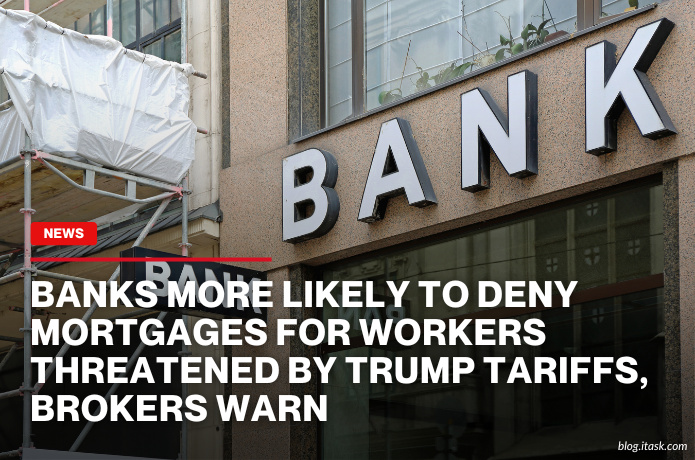Banks more likely to deny mortgages for workers threatened by Trump tariffs, brokers warn
Banks more likely to deny mortgages for workers threatened by Trump tariffs, brokers warn

Canadian banks are becoming more cautious in approving mortgages for workers in industries vulnerable to U.S. tariffs, particularly those threatened by former President Donald Trump. Mortgage brokers report that banks are tightening lending criteria for employees in sectors like steel, aluminum, and auto manufacturing, which are at risk of being affected by new tariffs. This increased scrutiny stems from concerns about potential job losses and income instability in these industries.
One of Canada's major banks has already implemented stricter lending standards for self-employed individuals in high-risk sectors, and other financial institutions are expected to follow suit. This shift means that even applicants with strong credit histories may face difficulties securing mortgages if they work in industries targeted by U.S. trade policies. The uncertainty surrounding these tariffs is prompting banks to reassess the risk profiles of potential borrowers more carefully.
The Canadian mortgage market is also experiencing fluctuations due to the economic uncertainty caused by the tariff threats. Some smaller lenders have responded by lowering fixed mortgage rates slightly, aiming to attract borrowers amid the volatile market conditions. However, the larger banks are proceeding cautiously, wary of the potential long-term impacts of the tariffs on the economy and housing market.
Economists warn that the tariffs could lead to higher costs for imported building materials, which would increase construction expenses and, consequently, home prices. Additionally, the broader economic implications of the tariffs could pressure the Bank of Canada to adjust interest rates, further influencing mortgage rates and housing affordability. These factors contribute to a complex and uncertain environment for both lenders and borrowers.
Mortgage experts advise prospective homebuyers and current homeowners to stay informed and consider consulting with mortgage professionals to navigate these challenges. Given the potential for rapid changes in the economic landscape, having a well-thought-out mortgage strategy is more important than ever. This includes evaluating the benefits of fixed versus variable rates and understanding how one's employment sector might affect mortgage eligibility.
As the situation evolves, Canadians working in industries susceptible to U.S. tariffs should be prepared for increased scrutiny from lenders. Staying proactive and seeking professional advice can help mitigate the risks associated with these economic uncertainties and ensure better preparedness for potential changes in the housing market.
